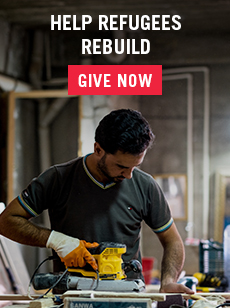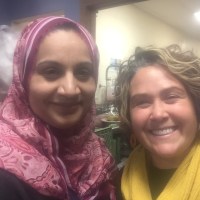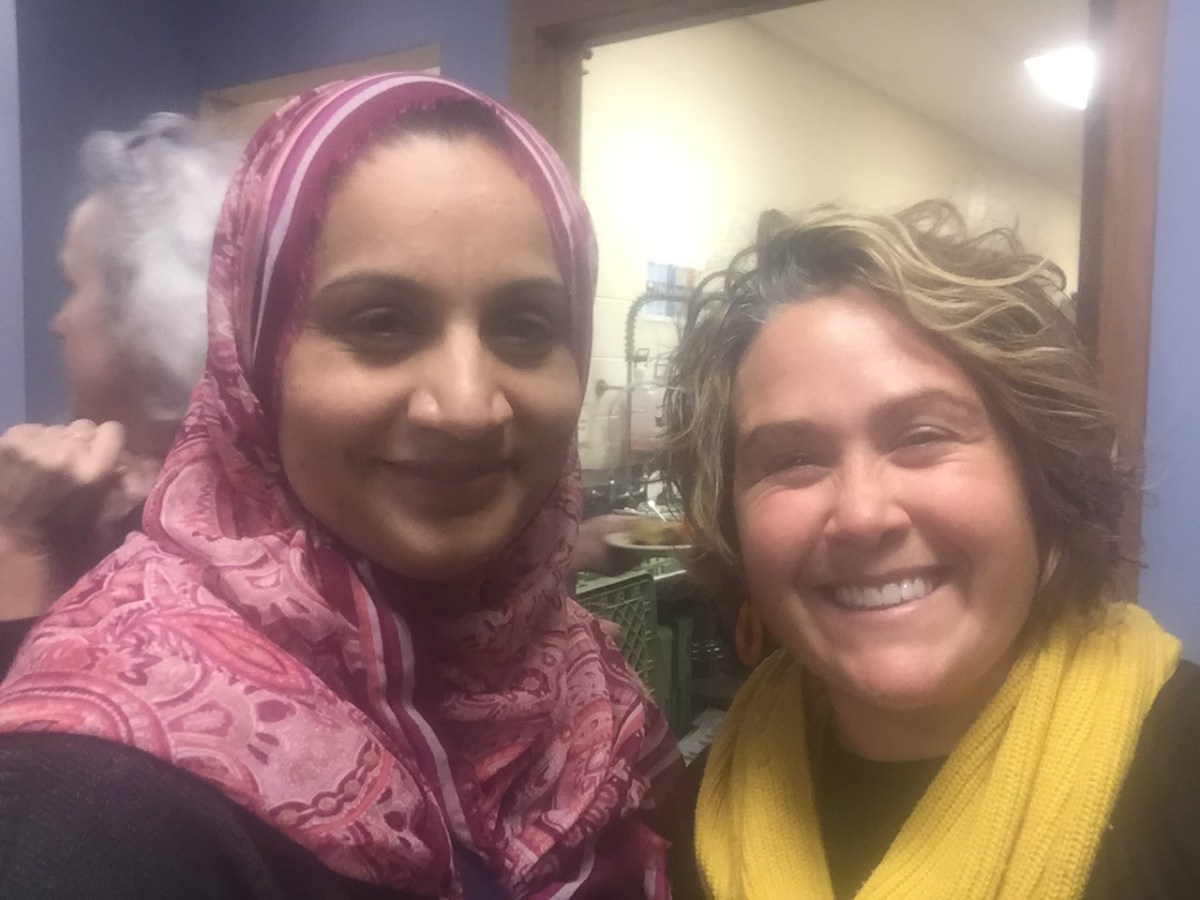“Go to coffee with someone who is different from you, someone you don’t know,” we say. What does it take to sit down across from someone you don’t know, who you don’t have anything in common with?
The truth is, it’s not easy. I want to be liked. I have feelings, and like us all, I bury my need to be loved and to belong underneath intellectual opinions, separation, and a carefully selected circle of friends.
Taking a deep breath, I punched in the words, “Want to grab coffee?” I forced myself to be braver than I felt and pushed “Send.” Why would she want to meet with me—someone she doesn’t know, with a different religion, a different skin tone? The hardest part of asking someone who you don’t already know to hang out with you are the looming, unanswered questions: “Why do you want to get to know me? What do you want from me?”
We learn early on to be careful, to protect ourselves from the world. “Be careful” is a tough habit to break, even when you desperately want to. What if she thinks I’m meeting with her to evangelize her, to “deliver” from her faith? What if she’s been the victim of a bait and switch and thinks I’m a white person who wants to do some armchair cultural exploration at her expense? What if she thinks I want to make myself feel better about the hate experienced by Muslims in my country by using her to soothe my conscience?
When we travel in our safe circles of friends, family, and worship communities, there is no need to protect ourselves. We know we are gathering under the same banner.
We show up, we get in the ring with our past pain, perceptions, and our self-protectiveness and live into a new possibility.
Bravely, Samaria and I both showed up. We bypassed coffee and boldly ordered lunch. The conversation meandered, looking for places we could connect with each other—raising kids, volunteering at school.
The question of what we wanted from each other never faded from our minds, but we each refused to entertain it. We refused to take the easy route of establishing a same cause, a same viewpoint or mutual enemy for the foundation of our meeting and possible friendship.

Tenuous threads were woven as we stayed at the table together and stumbled through conversation. The threads were invisible, but we were weaving a relationship that held a person at the center. And that requires risk and faith, and time and eyes to see beyond what is built yet. It doesn’t feel safe or steady… but it is real. It is an open hand that says “yes” to another person to be their whole selves without establishing pre-existing conditions.
Samaria told me, “Right after the Muslim ban was instituted, I was at our mosque’s monthly potluck when the police and fire trucks showed up. The neighbors had called the police because they had never seen so many cars at the mosque before and thought there was a party going on. Over a hundred people from the community showed up at our potluck to show us support and that we were their neighbors and they care about us. People from a church, from the Jewish community showed up, everybody.”
I couldn’t help the smile that was pasted across my face or the thump in my chest of hope and pride. It’s been almost two years since our country has talked about a Muslim registry and then a Muslim ban. It’s been almost two years—but she is holding this story up because it meant something to her. People showed up to share in their potluck and their neighbors were so shocked they called the police to investigate. Showing up when it’s not the norm, when it’s hard—that’s love. That’s how we transform suspicious words and policies into love for our neighbor.
Refusing to leave a single sweet potato fry on our plates, we poured more ketchup and kept talking until school pick-up time nudged us back into our responsibilities. “Next time, I’ll invite Caterina,” she said as she shrugged into her coat. Samaria was a Shia Muslim making the circle wider by inviting a Sunni Muslim to join us.
I smiled to myself as I walked out to my car. “She said next time! There’s going to be a next time.”
We didn’t bow to the question, “What do we want from each other?” we built a bridge toward one another, one wide enough for another to join us.
Choosing to move toward another person isn’t simple, because we aren’t simple. We show up with all of our own baggage, barriers, and suspicions. But we leave knowing we are braver than we knew and other people are more wildly lovable than we’d ever believed. Love first means we imagine the more beautiful world that our hearts know is possible, and then we take a chance on ourselves, on others. We show up, we get in the ring with our past pain, perceptions, and our self-protectiveness and live into a new possibility.
This is how we wage peace. This is how love overcomes our fears and makes us all human again. These are the bridges between people at odds. Unmaking violence begins when we move from the “us versus them” position—when we trade it in for the posture of radical hospitality and a humility that says everyone has a place at the table even when we disagree.
Belonging to each other is the peace that is possible. It’s the world I imagine for my children, for me.


